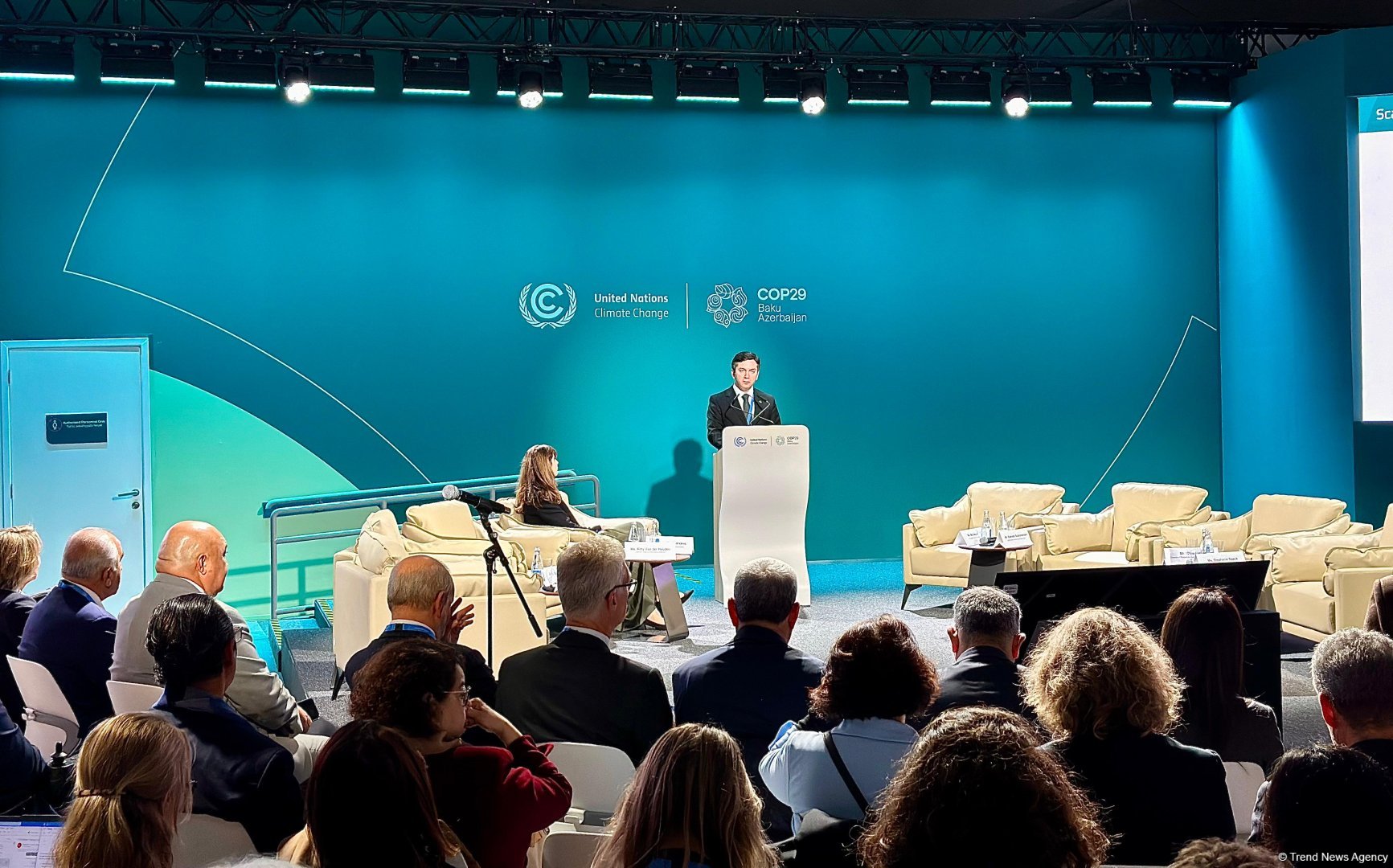BAKU, Azerbaijan, November 18. The Baku Initiative represents Azerbaijan's commitment to human-centered climate action, said Yalchin Rafiyev, COP29 Lead Negotiator and Deputy Minister of Foreign Affairs of Azerbaijan at the COP29 High-level Meeting on Investing in Human Development for a Climate Resilient Future in Baku, Trend reports.
He highlighted the far-reaching impact of climate change on various aspects of human life, including health, education systems, energy markets, and opportunities for future generations.
"We must invest in people, and these investments should be made at the earliest stages of climate change. To ensure that children and youth become part of a cohesive society linked to education, healthcare, and skill development.
These investments are not only crucial for resilience but also play a key role in enhancing efforts to mitigate the effects of climate change. This means preparing skills for the future and reducing current impacts on health and business.
While many negotiations focus on human development, the introduction of Human Development Day during COP29 marked the first time a comprehensive, interconnected approach has been placed at the forefront of our political efforts.
The Baku Initiative is a reflection and continuation of Azerbaijan's commitment to human-centered climate action. This initiative requires a diversified and holistic approach that will strengthen global cooperation, modernize investments, and ensure that human development remains a central element of our climate strategy.
The Baku Initiative embodies the belief that human development and climate action are shared responsibilities, not separate issues," he said.
To note, the 29th session of the Conference of the Parties to the UN Framework Convention on Climate Change (COP29), which will run until November 22, opened at the Baku Olympic Stadium on November 11. It is the largest event organized by Azerbaijan to date, and the first time in the region that it is being held in Azerbaijan.
Within COP29, the highest level event - the summit of world leaders on climate action – was held on November 12–13.
The main expectation from COP29 is to agree on a fair and ambitious New Collective Quantitative Goal (NCQG) on climate finance. The COP29 chairmanship has launched 14 initiatives that include linkages between climate action and the Sustainable Development Goals, including green energy corridors, green energy storage, harmony for climate resilience, clean hydrogen, methane reduction in organic waste, action on green digital technologies, and other topics.
In addition to being a top priority that creates the conditions for action, creating climate finance will also help fulfill the 1.5°C pledge by bringing everyone together.
The UN Framework Convention on Climate Change is an agreement signed at the Rio Earth Summit in June 1992 to prevent dangerous human interference in the climate system. The acronym COP (Conference of Parties) stands for “Conference of Parties” and is the highest legislative body overseeing the implementation of the Framework Convention on Climate Change.
A total of 198 countries are parties to the Convention. Unless otherwise decided by the parties, COP is held annually. The first COP event was held in March 1995 in Berlin, and its secretariat is located in Bonn.







